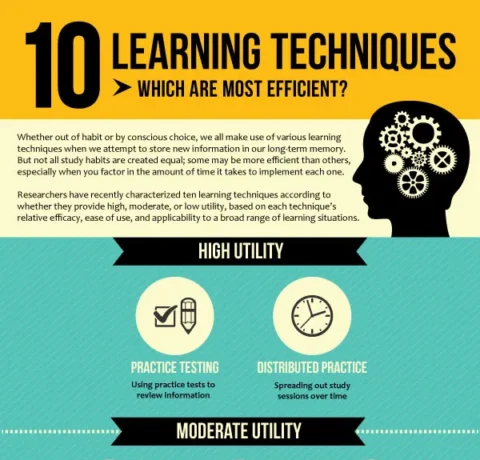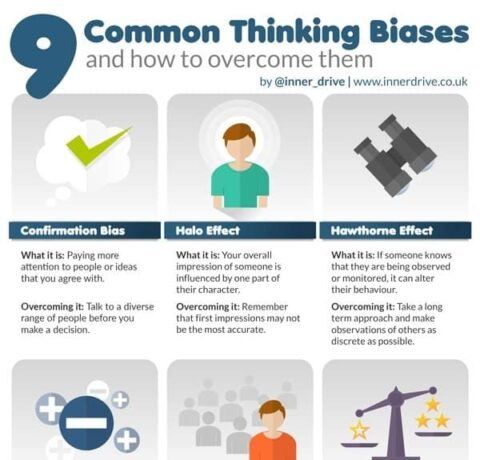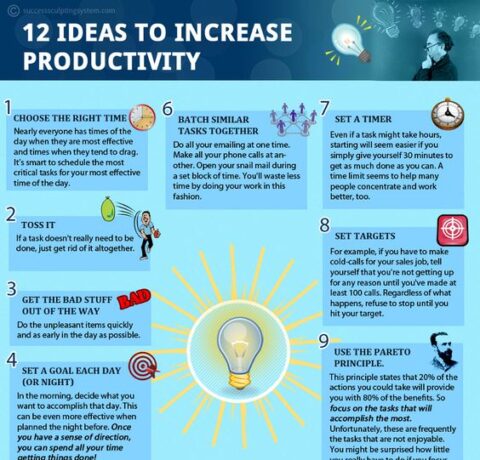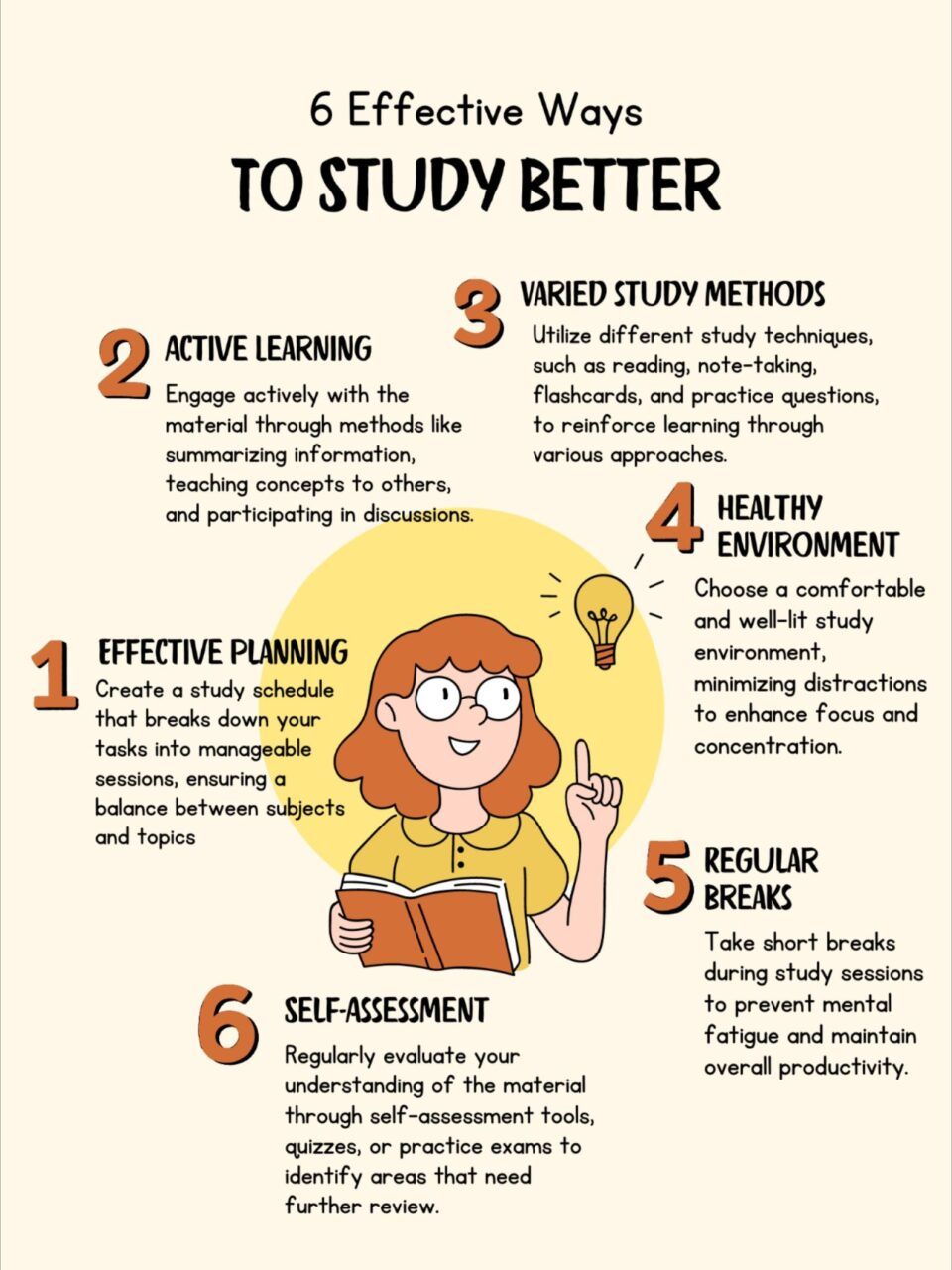6 Tips To Study Better—Infographic
Studying effectively can sometimes feel like a distant goal, but with the right approach, it becomes a lot easier to grasp. If you’re looking to improve your study habits and boost your academic performance, here are 6 practical tips that can make a big difference.
6 Ways To Study Smarter
1. Effective Planning
First things first: planning is crucial. It’s easy to feel overwhelmed if you dive into studying without a clear strategy. Start by breaking your study sessions into manageable chunks. Create a schedule that outlines what subjects or topics you’ll cover each day. Make sure to set specific, achievable goals for each session. For instance, instead of saying, "I’ll study history today," specify, "I’ll review chapters 3 and 4 and complete the practice questions at the end." This kind of detailed planning keeps you focused and ensures you’re making steady progress.
2. Active Learning
Passive reading or re-reading your notes is often not enough to truly grasp the material. Active learning involves engaging with the content in a way that reinforces your understanding. This might mean summarizing information in your own words, teaching the material to someone else, or applying concepts to practical scenarios. For example, if you're studying for a science exam, try conducting a simple experiment or solving related problems. Active learning helps deepen your comprehension and retention of the material.
3. Varied Study Methods
Mixing up your study methods can make your sessions more engaging and effective. If you always use the same technique, like just reading your notes, you might hit a plateau. Incorporate different approaches such as flashcards, mind maps, or practice quizzes. Try teaching the material to a study group or using mnemonic devices to remember key facts. The variety keeps your brain active and can help you grasp concepts from different angles.
4. Healthy Environment
Your study environment plays a significant role in how well you learn. A cluttered or noisy space can be distracting, so find a place where you can concentrate. This might mean a quiet corner of the library, a dedicated study room at home, or even a local café, depending on your preference. Ensure that your study area is well-lit and comfortable, and try to keep it free from distractions like your phone or TV. A clean, organized space can help you stay focused and motivated.
5. Regular Breaks
Studying for long periods without breaks can actually be counterproductive. Your brain needs time to rest and process information. Implement the Pomodoro Technique or similar methods, where you study for about 25-30 minutes and then take a 5-minute break. Use this time to stretch, grab a snack, or take a short walk. These breaks help prevent burnout and keep your mind fresh, so you’re more effective when you return to your studies.
6. Self-Assessment
Regularly testing yourself on what you’ve learned is key to solidifying your knowledge. Use practice exams and quizzes, or even create your own questions based on your study material. This self-assessment helps you gauge how well you understand the material and identify areas where you need more review. It also boosts your confidence and prepares you for the types of questions you might encounter in exams.
Conclusion
By incorporating these tips into your study routine, you’ll find that you study smarter, not harder. Effective planning, active engagement with the material, varied methods, a conducive environment, regular breaks, and self-assessment are all strategies that can help you achieve better results and make your study sessions more productive. So, give these techniques a try, and watch your study habits transform.







You can adjust your cookie preferences here.